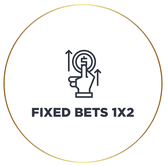Social media plays a significant role in responsible gambling campaigns by allowing for targeted messaging aimed at specific audiences. This capability enables campaigns to reach individuals who may be at risk, providing them with timely and relevant information.
Social media platforms facilitate the creation of engaging content that can influence perceptions of gambling. Through the development of supportive online communities and the sharing of interactive tools, these platforms can encourage active participation in responsible gambling practices.
However, there are challenges associated with using social media for these campaigns. One primary concern is ensuring that messages reach the intended audience without inadvertently promoting gambling to vulnerable individuals.
Additionally, maintaining privacy and security for users who engage with these campaigns is crucial. On the other hand, social media offers opportunities for real-time interaction and feedback, which can enhance the effectiveness of campaigns by allowing for adjustments based on user responses.
Overall, while social media provides valuable opportunities for responsible gambling campaigns, it is important to navigate its challenges carefully to maximize its potential benefits.
Key Takeaways
- Social media enables instant communication, spreading responsible gambling messages quickly to a broad audience.
- Interactive content like quizzes and polls on social media platforms boosts user engagement in responsible gambling campaigns.
- Visual elements such as images and videos enhance the memorability of responsible gambling messages.
- Analytics from social media provide insights into audience behavior, aiding in the optimization of responsible gambling content.
- Building online communities fosters peer support and shared experiences in responsible gambling discussions.
Social Media’s Impact on Awareness
Social media platforms have significantly altered the mechanisms for raising awareness about responsible gambling. These platforms offer a variety of tools that facilitate the dissemination of important messages efficiently and broadly. They enable connection with diverse audiences, thereby enhancing engagement and understanding of responsible gambling practices.
Key attributes of social media include:
-
Instant Communication: Messages can be shared immediately, reaching a broad audience in real-time. This immediacy is important for effective awareness-raising.
-
User Interaction: Platforms promote interaction through features like comments, likes, and shares. This allows for direct engagement with audiences and the collection of feedback.
-
Visual Content: The use of images and videos can make messages more engaging and memorable, potentially increasing their impact on viewers.
-
Hashtags: Employing relevant hashtags helps categorize content, making it accessible to individuals interested in responsible gambling.
Additionally, social media analytics offer insights into audience behavior and engagement levels. This data aids in tailoring content for optimal impact.
Strategies for Targeted Messaging
Crafting targeted messages is a key component for effectively communicating responsible gambling practices on social media. It’s important to reach the appropriate audience by utilizing detailed data and analysis. Social media platforms offer tools that assist in tailoring messages to ensure they resonate with specific groups.
Key Strategies for Targeted Messaging:
-
Audience Segmentation: Divide your audience into specific groups based on demographics such as age, interests, or gambling behavior. This approach enables the creation of messages that directly address their specific needs and concerns.
-
Platform Selection: Select social media platforms that are most frequented by your target audience. For instance, younger individuals may be more active on Instagram or TikTok, while older demographics might prefer Facebook.
-
Personalization: Utilize data to customize messages, enhancing their relatability. Personalization may involve incorporating names or referencing previous interactions, which can lead to increased engagement.
-
Timing and Frequency: Schedule posts when your audience is most active. By analyzing data on audience online activity, you can effectively time your content for optimal reach.
-
Feedback and Adjustments: Regularly monitor the performance of your messages, focusing on engagement metrics. Use this information to refine your strategy, ensuring that messages remain relevant and effective.
Engaging Content for Responsible Gambling
When examining strategies to promote responsible gambling, it’s important to develop content that effectively captures and retains the audience’s attention. Various methods can be utilized to achieve this goal:
-
Visual Appeal: Utilizing images, infographics, and videos can be an effective way to convey messages succinctly. These elements aid in making the information more memorable and can enhance comprehension.
-
Interactive Elements: Incorporating aspects such as quizzes, polls, or challenges can encourage user participation. Interactive content can lead to a more personalized experience, potentially increasing the impact of the message.
-
Clear Messaging: Content should be straightforward and easily understandable. Employing simple language and avoiding technical jargon can help reach a wider audience, ensuring the message is accessible to all.
-
Relatable Stories: Sharing real-life experiences or testimonials can provide a relatable context. Such narratives can illustrate the potential consequences of irresponsible gambling in a tangible manner.
-
Consistent Updates: Regular updates to content are essential to maintain its relevance and interest. Consistent updating can sustain engagement over time.
-
Call to Action: It’s important to include clear and direct calls to action. This may involve encouraging the audience to seek help, explore additional resources, or share the content with others.
Content that informs and prompts reflection on gambling habits can be impactful. By focusing on these elements, responsible gambling campaigns on social media platforms can be effectively developed.
Building Supportive Online Communities
Creating online communities that offer support can be instrumental in encouraging responsible gambling. These digital spaces can reduce feelings of isolation among individuals dealing with gambling-related issues. They serve as a venue for exchanging stories, advice, and support, which can be beneficial for those facing challenges with gambling. By connecting with others, individuals may find themselves more equipped to make informed decisions.
To effectively build supportive online communities, the following strategies can be implemented:
-
Moderation and Guidelines: It’s essential to establish clear community guidelines to ensure interactions remain respectful and constructive. Active moderation is crucial in maintaining a safe environment for all participants.
-
Diverse Platforms: Utilizing various social media platforms, such as Facebook, Reddit, and Discord, can cater to different types of interactions and discussions, each with its own set of features.
-
Regular Engagement: Consistent posting can help keep the community active. Engaging with members through comments, questions, and live sessions can further strengthen the community.
-
Peer Support: Facilitating peer-led discussions allows members to share personal experiences and strategies regarding responsible gambling practices.
-
Educational Content: Providing informative content that educates members about responsible gambling practices and available resources is important for raising awareness and offering support.
These strategies, when carefully implemented, can contribute to the development of online communities that support responsible gambling behaviors. Also, check out our article The Role of Streaming and Content Creation in Esports Betting Trends.
Interactive Tools and Resources
Establishing supportive online communities is essential for fostering user engagement, and the integration of interactive tools and resources can significantly increase their utility. A range of tools is available to assist users in managing their gambling activities responsibly and remaining well-informed. These tools provide real-time assistance and personalized feedback.
Interactive Tools:
-
Self-Assessment Quizzes: These quizzes enable users to evaluate their gambling behaviors, providing insights into potential risks associated with their activities.
-
Budget Calculators: These tools allow users to monitor their spending, set financial limits, and calculate savings accrued by avoiding excessive gambling.
-
Time Trackers: Such tools help users monitor the time spent on gambling activities, promoting a balanced lifestyle by encouraging time management.
Resources:
-
Educational Videos: These are concise, informative videos aimed at educating users on gambling risks and responsible play strategies.
-
Webinars and Live Q&A Sessions: These sessions feature experts who offer insights and address user inquiries, facilitating real-time interaction and support.
-
Downloadable Guides: These resources cover various topics, including setting limits, recognizing signs of problem gambling, and seeking assistance when necessary.
Challenges and Opportunities
Navigating the landscape of responsible gambling on social media involves a range of challenges and opportunities. Social media platforms can effectively disseminate messages to a wide audience, but the environment is highly competitive. The abundance of content makes it difficult for individual messages to gain visibility. Misinformation also poses a risk, potentially undermining the effectiveness of responsible gambling campaigns.
Challenges:
-
Oversaturation: With a vast amount of content available, messages about responsible gambling may not capture the necessary attention.
-
Algorithm Changes: Social media platforms regularly update their algorithms, which can affect how content is prioritized and seen by users.
-
Misinformation: The rapid spread of inaccurate information can negatively impact the perception and success of responsible gambling initiatives.
-
Privacy Concerns: Concerns about data security may lead to reduced user engagement with campaigns.
Opportunities:
-
Targeted Advertising: Social media enables precise targeting, allowing campaigns to reach specific demographics more effectively.
-
Engagement: Features such as polls and quizzes can enhance interaction and engagement with the audience.
-
Analytics: Detailed analytics provide insights into audience behavior, helping to refine and improve campaign strategies.
-
Community Building: Social media platforms provide opportunities for creating communities that encourage discussions on responsible gambling practices.
To address these challenges and leverage opportunities, it’s essential to engage in strategic planning and remain adaptable. Staying informed about platform changes and utilizing analytics can help enhance the reach and effectiveness of responsible gambling campaigns.
Frequently Asked Questions
How Do Privacy Concerns Affect Participation in Social Media Gambling Campaigns?
Privacy concerns can make you hesitate to engage in social media gambling campaigns. You’re worried about data misuse and identity theft, so you might avoid participating or limit your interactions to protect personal information.
What Role Do Influencers Play in Promoting Responsible Gambling on Social Media?
You rely on influencers to shape perceptions, engage audiences, and drive responsible gambling messages. They create relatable content, share personal stories, and educate their followers, encouraging safer habits while making the topic more approachable and less stigmatized.
How Can Cultural Differences Influence the Effectiveness of These Campaigns?
Cultural differences shape how people perceive and engage with campaigns. You must tailor messages to fit cultural values and norms. If you don’t, the campaign might not resonate, reducing its impact and effectiveness across diverse audiences.
How Is the Success of Social Media Gambling Campaigns Measured?
You measure the success of social media campaigns by tracking engagement metrics like likes, shares, and comments. Analyze conversion rates, website traffic, and user feedback to determine if your message resonates and influences behavior positively.
What Ethical Considerations Arise When Using Social Media for Gambling Campaigns?
When using social media for gambling campaigns, you must consider user privacy, transparency, targeting vulnerable audiences, and promoting responsible behavior. Ensure ads don’t exploit addiction and provide clear information about risks and support resources.
Conclusion
Social media is vital for responsible gambling campaigns, offering numerous features that enhance their effectiveness. You can:
- Increase awareness through engaging content and immediate communication.
- Use targeted messaging to reach specific demographics with relatable stories.
- Build supportive online communities where users share experiences.
- Provide interactive tools like self-assessment quizzes and educational resources.
By leveraging these functionalities, social media helps promote safer gambling behaviors. However, balancing engagement with privacy concerns remains a challenge, requiring continuous attention and adaptation.

